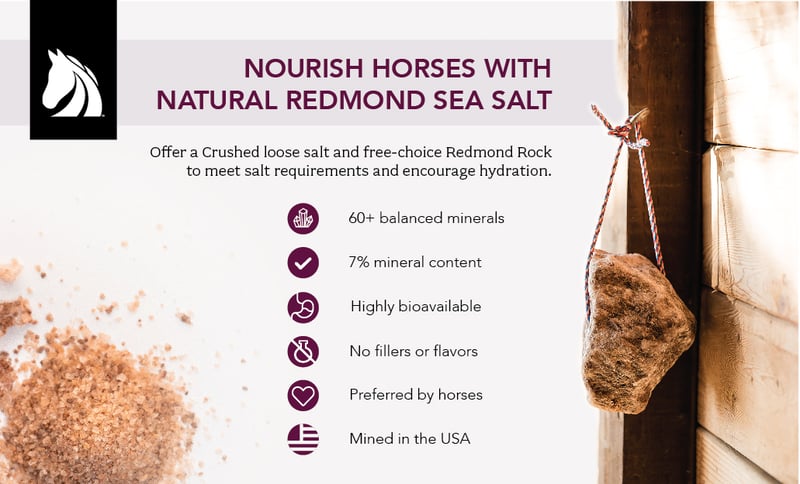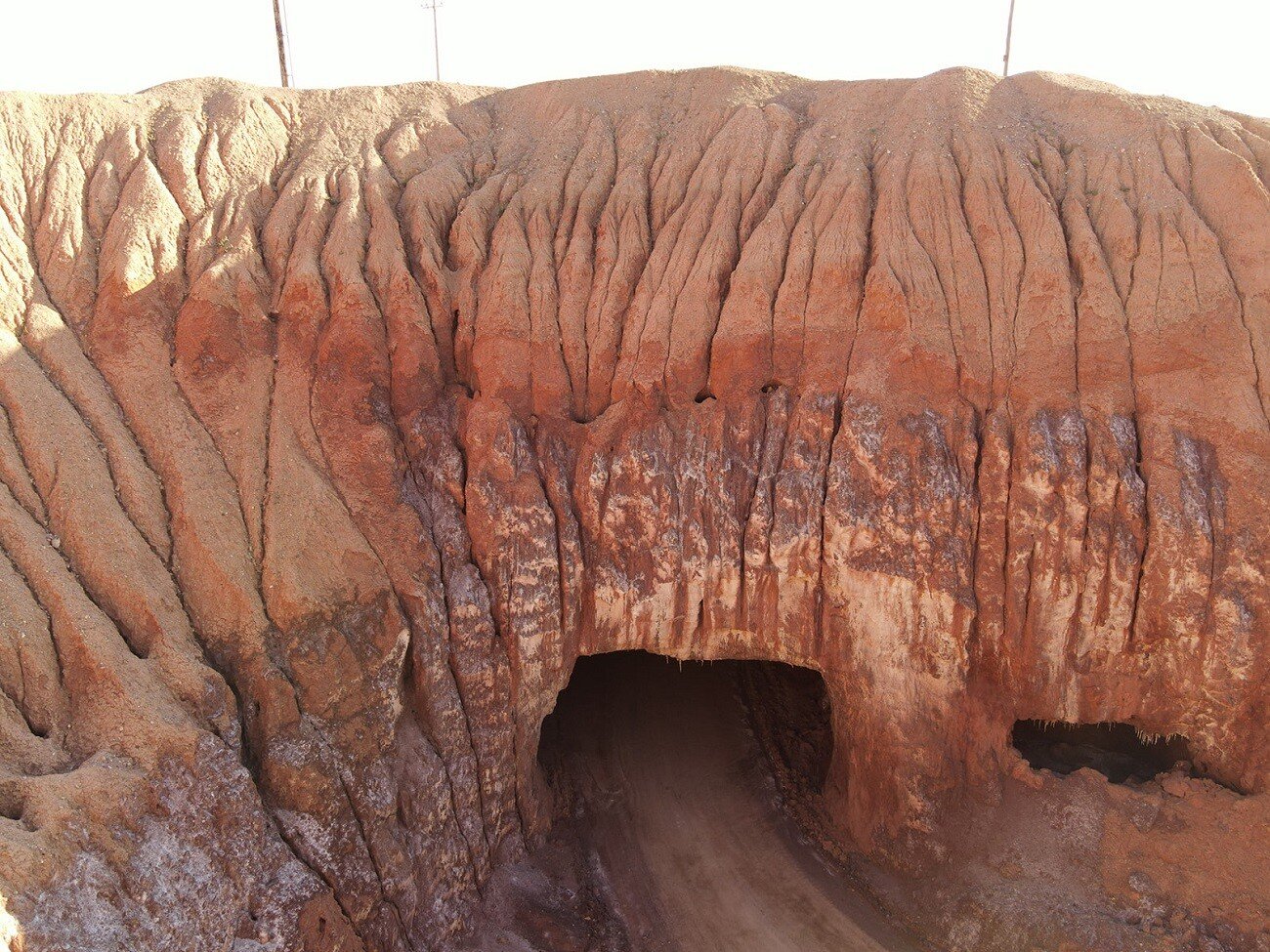Why You Should Be Feeding Loose Salt for Horses
November 28, 2023
Why You Should Be Feeding Loose Salt for Horses
Does your horse struggle to use a salt lick? You’re not alone. Many horses ignore free-choice salt blocks, leaving them to gather dirt and manure in the corner of the stall. The situation can be frustrating and expensive for horse owners, especially if you're trying out—and throwing out—a lot of blocks.
Here's the good news. The answer to your horse's picky palate and potential salt deficiency is actually pretty simple! Let’s explore reasons why some horses ignore their salt licks and simple solutions to fix the problem.
Do Horses Like the Taste of Salt?
Salt is critical in a horse's diet. It triggers thirst and is necessary for hydration, muscle contraction, digestion, and healthy nerve function.
Salt deficiency is common in horses that either won't eat certain salt products or are not provided a salt supplement at all. That resulting lack of sodium can spur serious issues like dehydration and colic.
Luckily, horses have an instinctual craving for salt and will naturally seek it out. So, if your horse is ignoring its block? It’s probably not because they dislike the taste of salt. Rather, the source of the salt may be the problem.
Why Some Horses Won’t Eat Salt
There are two main reasons why horses are reluctant to consume some salt licks:
- Heavily Processed. Many pressed salt and mineral blocks are heavily processed and made with manufactured minerals. This can produce a bitter taste horses find unpalatable.
- A Sensitive Tongue. Horses have smooth tongues that may become sore after prolonged licking—especially if a horse works hard and a lick is their only salt source.
Solving the worrisome problem of a horse that won't use a salt block is an easy fix. Read Terri's story below about how she swapped her horse's mineral lick for a loose salt and got great results.
Why I Switched to Redmond Loose Mineral Salt
Before I found Redmond mineral products, my horses Sadie and Midnight totally ignored every single brand of salt lick I purchased. Their disinterest was frustrating and discouraging, and I worried they weren’t getting enough minerals or taking in adequate water.
Daily Red Crushed loose mineral salt was the answer to my horses’ picky palates! Unlike solid salt licks, they actually liked Redmond's mineral salt, which comes in granular form.
Crushed makes it easy to ensure each of my horses gets the right amount of salt and minerals every day. I simply add it to their wet feed, and my horses lick it clean.
With Redmond, I feel satisfied my horses are getting the minerals they need and staying hydrated, and I’m not wasting money and time on salt licks they hated.
—Terri Koberstein

How to Feed Loose Salt to Horses
Feeding loose salt is a simple yet effective solution to salt deficiency. You can ensure your horse receives—and actually eats—adequate daily salt and minerals by following these two steps recommended by equine nutritionists:
-
Top-Dressing Loose Salt: Add 2 to 4 tablespoons of loose mineral salt to horses’ feed rations. Adjust the serving up or down based on activity levels and sweat production. Equine loose minerals can also be fed free choice to horses that self-regulate.
-
Offering a Free-Choice Rock: Also provide a natural, mined salt rock like Himalayan or Redmond Rock on a Rope—which most horses love—to meet any extra salt needs.
All-Natural Rock Salt & Loose Minerals Horses Love
If you're tired of throwing money away on licks your horse won't eat, consider switching to Redmond. We offer our fan-favorite mined Redmond Rock and a full line of natural loose mineral salts that are delicious and easy to feed.
The benefits of Redmond loose salt include:
- Essential sea salt mined in Utah, USA
- A full spectrum of balanced and bioavailable trace minerals
- Unprocessed and free of fillers and funny stuff
- Easy to feed and vary the daily serving
- Natural flavor preferred by horses

Ensuring your horse receives the vital salt and minerals it needs doesn't have to be a frustrating and costly experience. Redmond provides natural, unprocessed alternatives to blocks that most horses love. Click below to shop our licks and loose horse minerals today!
Learn More
- Debunk four common misconceptions about horse salt licks and choose a better lick for your horse.
- Dive deeper into how much salt horses need daily to avoid deficiency and toxicity.
© Redmond Equine 2023. All rights reserved.
Related posts

Loose Minerals Helped Shanon's Rescue Horse | A Redmond Story
Many horses are deficient in critical trace minerals. Redmond Rock natural salt lick and loose minerals provide horses the minerals they need for...
December 18, 2024

Where Does Your Horse’s Salt Come From?
Looking for the best all-natural horse salt supplement? Learn how Redmond's local salt mine supplies natural, quality salt licks and loose salt for...



